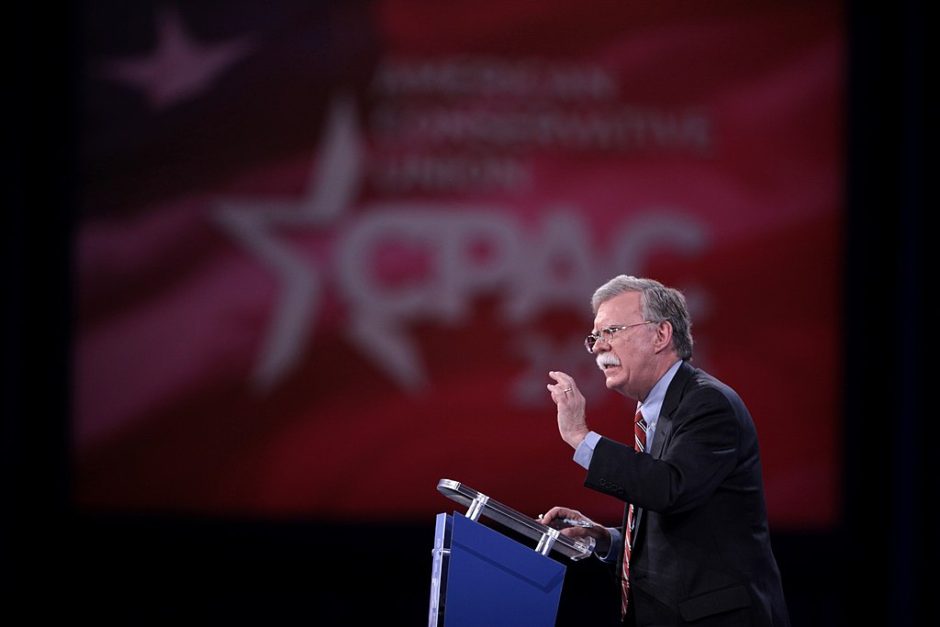In an unprecedented tripartite summit, the national security advisors of Israel, the United States and Russia — Meir Ben-Shabbat, John Bolton and Nikolai Patrushev — conferred in Jerusalem on June 25 to discuss some of the key problems that afflict the Middle East today and roil their respective bilateral relations.
Topping the agenda were a maze of interlocking issues — the escalating political and military standoff between the United States and Iran, the future of the Iran nuclear accord, the ongoing civil war in Syria and its impact on Israel and neighboring states, and Iran’s attempts to entrench itself militarily in Syria.
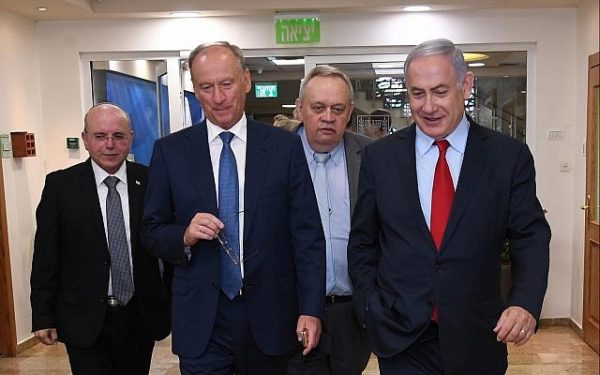
Speculation abounded that the summit might produce an agreement between the United States and Russia regarding Syria. Russia would remove Iranian forces from Syria and, in exchange, the United States would lift some of its sanctions against Russia and recognize the Russian-supported Syrian regime of President Bashar al-Assad.
Given Washington’s and Moscow’s conflicting regional interests, no such understanding emerged, throwing into doubt whether one is even possible at this point.
Certainly, Israeli Prime Benjamin Netanyahu was pleased that the summit, held in Jerusalem’s Orient Hotel, took place in Israel. “The very fact that this summit is happening here is more evidence of the special standing of Israel among the nations of the world at this time,” he said.
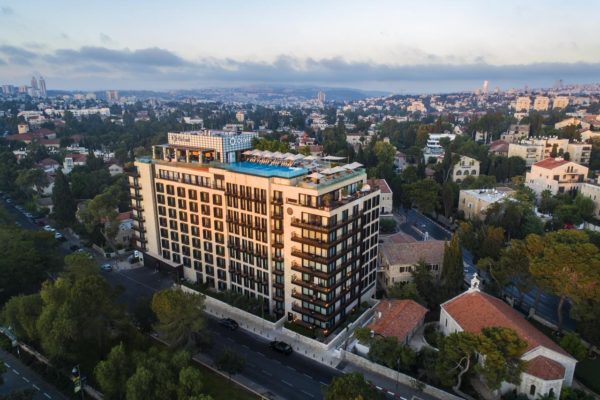
Israel had a keen interest in discussing the vexing problems on the summit’s agenda because they all impinge on its short-term and long-term security, either directly or indirectly.
The Israeli government staunchly opposed the nuclear accord signed by Iran, the United States, Russia, China, Britain, France and Germany four years ago, branding it a “historic mistake.” But Israel was pleased by U.S. President Donald Trump’s decision last May to unilaterally pull out of the agreement.
Trump, having lambasted it as a misbegotten deal, wants to renegotiate it, but the Iranian leadership has rejected his overtures. Trump has held out the possibility of starting new negotiations without preconditions, but he is demanding an assurance from Iran to end its pursuit of nuclear weapons and to stop “belligerent acts directed against the United States and its allies.”
To achieve this objective, the Trump administration has embarked on a campaign of “maximum pressure” against Iran. Two days ago, Trump imposed another round of crippling sanctions against Iran. Since May, he has sent military assets to the region. Washington, too, has deprived Iran of revenues from its vital oil exports.
Russia continues to support the nuclear agreement and opposes U.S. sanctions and threats against Iran.
By way of reaction, Iran has threatened to produce more low-enriched uranium and begin to enrich uranium to higher levels of purity, in contravention of the nuclear agreement.
The latest phase in the United States’ confrontation with Iran began in May when the Trump administration accused Iran of having attacked six oil tankers around the Strait of Hormuz, an accusation Iran denied. Last week, Iran shot down a $130 million U.S. drone near the Iranian coast. Washington maintains it was flying in international airspace. Iran says it was intercepted in its airspace.
The loss of the drone prompted Trump to order a missile strike on Iran’s naval facilities that he cancelled at the very last moment. The United States, though, launched cyberattacks against an Iranian intelligence unit that was supposedly involved in attacking the oil tankers.
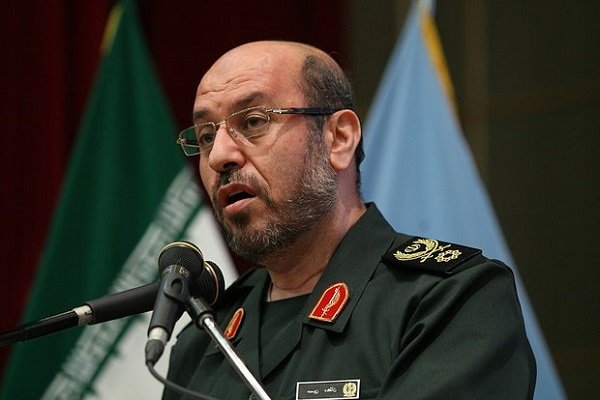
Yesterday, the former Italian defence minister, Hossein Dehghan, threatened to destroy U.S. bases in the Middle East and attack Israel should a war break out. “Israel knows that Iran will erase its entity and uproot it from existence in case of a war,” he declared.
In the meantime, Israel has been aggressively resisting Iranian efforts, tacitly supported by Syria, to establish bases on Syria’s side of the Golan Heights. In the past two years, the Israeli Air Force has repeatedly bombed Iranian bases in Syria and Hezbollah convoys transporting weapons from Syria to Lebanon. Israel has usually not acknowledged these strikes, and there has been little reaction from either Iran or Hezbollah.
Russia, Syria’s chief ally, has helped the Syrian armed forces win back territory lost during the initial phase of the civil war, which erupted in 2011. Iran and Hezbollah have assisted Syria militarily as well.
Four years ago, after Russian President Vladimir Putin dispatched aircraft and support crews to Syria in a last-ditch effort to turn the tide of the war in Syria’s favor, Israel and Russia agreed to coordinate military actions over Syria to avoid accidental clashes. Netanyahu met with Putin in Moscow regularly to assure the agreement ran smoothly.
Last September, however, Moscow accused Israel of fomenting tensions after a Syrian jet accidentally downed a Russian reconnaissance plane over Syria. This incident strained Israel’s relationship with Russia and prompted Putin to dispatch the S-300 anti-missile system to Syria. Israel has since reduced the number of air attacks on Iranian targets in Syria, but warned Russia that the S-300 will be a legitimate target should it fall under the complete control of Syrian forces.
As for Iranian forces in Syria, Israel last year reportedly rejected a Russian offer to move them about 100 kilometres away from the Golan, which Israel occupied during the Six Day War. Israel was reluctant to accept Russia’s offer on the grounds that it would constitute a tacit acceptance of Iran’s presence in Syria.
Despite Trump’s announcement last winter that U.S. troops would be withdrawn from Syria, he has since backpeddled, having agreed to maintain a small garrison in eastern Syria.
On the eve of the summit, Netanyahu claimed that the “common objective” of all three parties is to ensure the withdrawal of all foreign forces from Syria. As he put it,“There’s a wider basis for cooperation between the three of us than many believe …. We have a common objective: that no foreign forces that arrived in Syria after 2011 remain in Syria.”
In a reference to Iran, he reiterated that “Israel won’t allow an Iran that calls for our annihilation to entrench itself on our border.” He added that Israel would “do anything it takes” to prevent Iran from obtaining nuclear weapons.”
Lauding Israel’s military coordination with Russia in Syria, Netanyahu said it has “already contributed a great deal to the security and stability of our region, and has profoundly changed the regional situation.”
Last week, Patrushev said that Russia would back Iran’s interests at the trilateral meeting in Jerusalem: “Iran is in Syria at the invitation of the legitimate government and is actively involved in fighting terrorism. Therefore, of course, we will have to take into account the interests of Iran,”
Claiming that Iran is combating Islamist terrorists in Syria, he said, “We work together and listen to each other. We’re aware of Israel’s concerns and hope the threats will be lifted.”
“We pay special attention to ensuring Israel’s security,” he went on to say, calling it “a special interest of ours because here in Israel live a little less than about two million of our countrymen. Israel supports us in several channels, including at the United Nations. The prime minister (Netanyahu) has already said that we share the same views on the issue of the struggle against falsifying the history of World War II.”
And in an implied reference to Iran, he added, “At the same time, we should remember that other regional states also have their national interests.”
At a press conference in the wake of the summit, Patrushev dismissed the view, espoused by Israel and the United States, that Iran represents “the main threat to regional security.” And in a direct critique of Israeli policy, he said that Israeli air strikes in Syria targeting Iranian forces and its Shi’a militia proxies were “undesirable.”
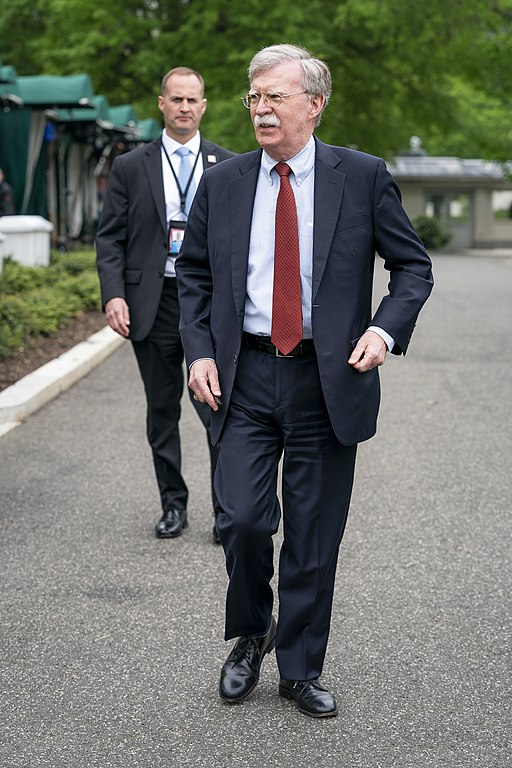
Bolton, describing Iran as the “source of belligerence and aggression” in the Middle East, urged Tehran to cease its “malign behavior,” enter into “real negotiations” over its nuclear weapons and ballistic missile development programs, and cease its support for groups such as Hezbollah and Hamas.
Acknowledging he had no high expectations of the summit, he said, “We didn’t come with the expectation we were going to solve all the problems, or even most of them.” The summit, he added, clarified the respective positions of the participants.
Prior to the summit, Bolton warned Iran that U.S. restraint should not be mistaken for weakness, saying that the military option remained in the table. “No one has granted (Iran) a hunting licence in the Middle East,” he said.
“Iran can never have nuclear weapons,” he declared in no uncertain terms. “Not against the U.S.A., and not against the world.”
